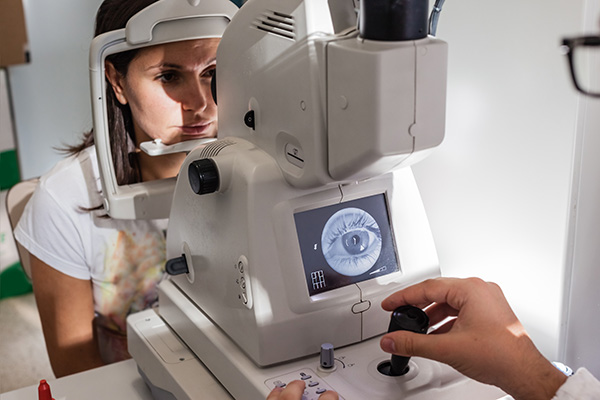
Our Office
680 Kinderkamack Rd
Suite 103
Oradell, NJ 07649
Existing Patients: (201) 265-9040
New Patients: (201) 241-4222
Visit Us Online

A trabeculectomy is a surgical procedure that focuses on lowering the inner pressure of your eye in the treatment of glaucoma.
Glaucoma is a common condition that develops when your eyes can’t effectively drain away excess fluids due to obstructions in the trabecular meshwork, your eye’s natural drainage system. This allows pressure to build up inside your eye around the optic nerve, which can lead to visual disturbances and eventually, irreversible blindness.
Dr. Prince can determine if you need a trabeculectomy after performing a comprehensive eye evaluation and measuring the pressure of your eye. He can discuss all of your options, including glaucoma laser surgery, before recommending a trabeculectomy.
During a trabeculectomy, Dr. Prince makes a small hole in the eyewall and a small trap-door that allows fluids to drain into a small reservoir, or bleb, under the surface of your eye.
Dr. Prince creates the trap-door specific to your needs, which sits under your eyelid and isn’t visible. He ensures that fluids won’t drain away too fast and that your eye pressure remains stable.
In many cases, Dr. Prince performs a trabeculectomy in-office on an outpatient basis and provides you with local anesthesia to keep you comfortable. This means you can go home to recover soon after your procedure.
After surgery, you won’t feel the trap-door or bleb in your eye and can expect to start healing right away. You may initially have swelling and redness in your eye and eyelid, which resolves without additional treatment.
Blurry vision is also common following a trabeculectomy. These vision changes can last for 1-2 weeks before improving as your eye heals.
Dr. Prince can determine when you need to come back for a follow-up visit to monitor your healing process and remove your stitches. He prescribes medications to prevent inflammation and infection. You may also need medications to maintain healthy pressure in your eye.
To find out if a trabeculectomy is right for you, schedule a consultation with Dr. Prince by calling the office of Andrew M. Prince MD Ophthalmology and Ophthalmic Surgery today.
